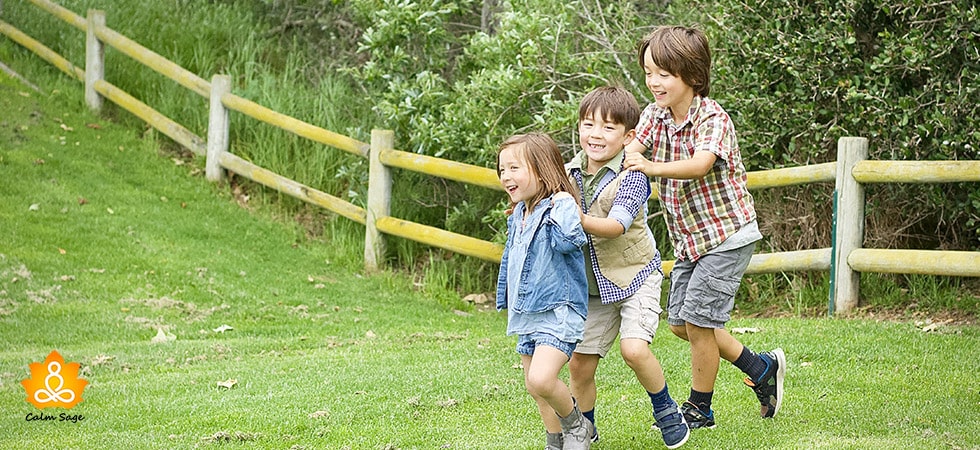Signs of Oldest Child Syndrome and How to Deal With it

Are you the eldest child in your family with many responsibilities on your shoulders? Do you feel the pressure of doing things right and being successful?
Do you feel like everyone has expectations from you, and you need to fulfill them anyhow? If so, these might be the signs of oldest-child syndrome.
Even though not all older children show these signs. However, there are some common signs you should look out for when suspecting older child syndrome.
In this blog post, we will discuss how they can be handled.
What Is Oldest Child Syndrome?
Have you ever seen the eldest child throwing tantrums to get attention, being competitive, showing dominance, or being bossy with their younger siblings? If yes, these may be the signs of oldest child syndrome.
Most firstborns globally, with the birth of their sibling, undergo a normal transitional phase. From being the only child, they now become the eldest and have to share the love and attention of their parents.
Due to this, the oldest child faces a developmental crisis and even shows signs of sibling rivalry. Not only this, but their behavior and personality start to change due to this transition as they are now being treated as a secondary parental figure by their younger siblings, and parents start to expect a lot from them.
Parents start to impose more rules on them and are stricter with the first child. This changes the whole paradigm of childhood for them, and now, from being a child, they have started to behave like authority figures for their younger siblings.
Oldest Child Syndrome Characteristics
1. People pleaser – As firstborns have no one to tease and get undivided attention, they become people pleasers.
2. Confident – They are closer to their parents, often imitate them, and take charge of things confidently.
3. Think whatever they do is right – Older children are often taken seriously by adults, which boosts their confidence and makes them think whatever they do is right.
4. Perfectionists – Firstborn children are usually perfectionists. They want to get everything right on the first try. Due to this, they sometimes face difficulty accepting and admitting that they are wrong.
5. Overachievers – Usually, they are overachievers and never like it when others win.
6. Strong-willed – Firstborns are strong-willed and independent and try to fulfill every expectation they perceive that a parent wants them to fulfill. They do their best to please the parents.
7. Leader – The oldest children usually look for leadership roles and like to boss around their younger siblings.
8. Trust issues – Usually, they have trust issues and cannot delegate their responsibilities and tasks to others.
9. Good at studies – The eldest child is usually good at studies, and they have a strong desire to outsmart everyone.
10. Organized – The oldest child is usually organized, reliable, and punctual.
11. Snobbish – Sometimes, they have a snobbish and alone attitude towards their siblings.
12. Punished more often – As the oldest child is the first one, parents do not have much experience in parenting; hence, they punish the elder child more than the younger siblings. This is unfair to the eldest child, but this is how things go.
13. Always get everything new – Even though the eldest child might have to undergo different things, there is one thing that they are lucky with. They always get everything brand new, be it books, clothes, or anything, and then are given to the sibling to use.
14. Secretly resent younger siblings – The first baby has a habit of getting everything first. However, the equation changes when there is a newborn, and parents must allocate time for their children. Due to this, the undivided attention of the first one was shared, and the oldest started to resent their younger siblings.
15. Loves acting as a teacher – The eldest child loves to act as a teacher to the younger children and siblings.
Strategies for Managing Oldest Child Syndrome
Being a parent of the elder child or being one yourself comes with challenges. However, being aware of the difficulties that come with it makes you ready to deal with them. It also tells that you are aware of the responsibilities and the impact the birth order puts on you.
Here, we bring you tips and strategies that you can use to handle the oldest child syndrome.
1. Expectations from the firstborn should be kept moderate
Intentionally or unintentionally, parents’ expectations of firstborns can be pressurizing. If you find your eldest child to be a people-pleaser, they might feel bad and miserable when they fail. However, this trait develops as the eldest child tends to be a perfectionist.
Hence, when they fail, you must encourage them as a parent. This will make them learn from their mistakes and understand that failing is part of life and there is no harm in accepting it.
2. Give them enough opportunities
Most parents want their first child to be the role model for younger siblings, but they do not understand that in doing so, they are burdening the child with the responsibilities.
Hence, avoid putting several responsibilities on the eldest child. Give equal opportunities to grow and learn and encourage them to develop skills. Moreover, make them understand that being bossy or dominating will not take them anywhere.
3. Spend time and pay attention
Regardless of the number of children you have, give each time some alone time. Talk to the oldest child like a friend, try to know about their friends, school, and classmates, share and make memories with them, and try to know what they plan.
This boosts their confidence and makes them realize that even if they have to share their parent’s love, they are not forgotten and are still loved.
4. Give the eldest child some special privileges
Parents give undivided attention when there is only one child in the family. However, as the family grows and younger siblings are born, the attention, love, and everything else is shared. This makes the firstborn feel deprived of their parent’s love. Therefore, to balance out things, they should be allowed some special privileges like late bedtime, longer playtime, having to participate in the discussion, etc. This puts the firstborn at ease, and they don’t think they are left out.
5. Make them learn how to create a balance
Take the help of the oldest child to do chores without interfering with playtime. Give them credit for the good things they do since the eldest child has the perfectionist tendency to notice even the tiny things they do.
This will make them feel they are being noticed and can fulfill the expectations. When the time is right, allow them to do things independently. Set an age when they can do things independently that makes them feel independent.
Spend quality time with the oldest child. This will make them feel as if they are still being recognized.
6. Where to Go From Here
It is not easy to be the eldest child. Being one comes with many responsibilities and might make one feel pressured and forced to do things perfectly. Due to this, one might even struggle with mental health issues.
However, things can be handled if one knows how to set boundaries and does not take everything on them. In addition to this, parents also need to pay attention to how the child is behaving.
If the child is unnecessarily burdening themselves or the parent is expecting too much from the eldest child, they should refrain from doing so.
Each child has their characteristics. Indeed, the birth order sets some things up, and societal norms add to the pressure. But it doesn’t mean the eldest can’t do the same things as their siblings.
They are also free to do something; you should understand it as a parent. If you find your child exhibiting eldest child syndrome, don’t worry. Help the child explore their strengths, be with them, and support them. However, if things aren’t working, you can consult a therapist.
Remember, there is no right or wrong way of parenting. You just need to maintain a balance and be available when your child needs you, and everything will fall in place.




















